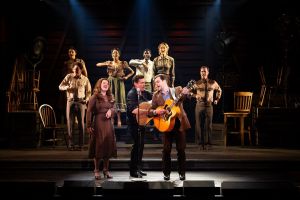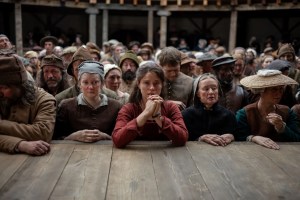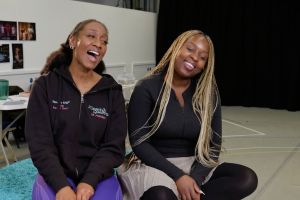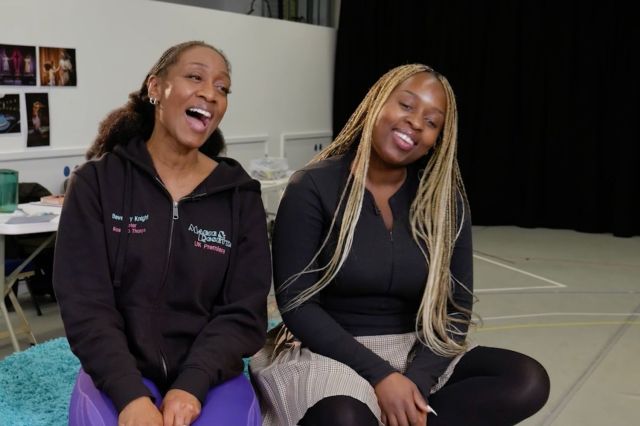Guest Blog: Making a game show out of the banking crisis
Whatsonstage.com asked me to write about where the idea for MONEY the game show came from and how it works. It immediately struck me how apt the name of this fine website is, because what’s literally on stage is what it is all about: Money. The most important prop is £10,000 in shiny pound coins.
This is how the show works: The audience arrive in the foyer of the theatre and are greeted by two ‘ex-hedge fund managers-turned performance-artists’. They divide the audience into two teams who are then led into the theatre to compete with each other through a series of games with 10,000 actual pound coins. These games illustrate key practices used in hedge funds to make profit for their investors. There are games that get money into funds, there are games that bet on value rising and games that bet on bubbles bursting. When inventing the games I suppose I was partly inspired by Supermarket Sweep and partly by childrens’ birthday parties.
Now, I have to be very clear. The audience can’t take any of the money home with them. Insurance companies make you take particular precautions if you want to put 10,000 pounds on stage. One of them is having a security guard present at all times. Another is filming the whole thing on CCTV. For me, this is fascinating. I wrote this play because I wanted to ask ‘What is money?’ and it is clear that an important part of the answer is about power and enforcing power physically when necessary. The audience may not be able to take any of the money home with them, but there are consequences if your team wins or loses. Winning or losing determines which of the ‘ex-hedge fund managers-turned performance-artists’ will kill themselves.
(But, of course, this is a playful play and no actual hedge fund managers or performance artists are actually harmed in the making of this show!)
In between the games Queenie and Casino, the ex-hedge fund managers, present scenes from their lives leading up to the economic crisis. Their story is about spotting the American sub-prime housing market is about to crash and trying to make money by betting at the right moment that people will start defaulting on their mortgages and ultimately lose their homes.
Their story is inspired by real-life hedge funds who made this bet and made billions of dollars. One New York based hedge fund made approximately $20 billion on this bet. Its owner personally took home $4 billion. But this is small change if we think of the trillions that had to be spent by nearly every western democracy simply to stop the whole system collapsing.
I was amazed in 2008 when Lehman Brothers went bankrupt that the chain reaction it sparked so quickly and absolutely threatened the value of all the money in the whole global economy. It had never really occurred to me that modern, sophisticated, globalized money could actually stop working. It was shockingly clear that money is made through trust and belief, between financial institutions who lend to each other and between all of us, in our everyday lives.
Cash, credit cards, debt, whatever form money takes it’s always a representation of something else. Sometimes it’s a commodity like gold, a service or goods. But probably more often it’s an intangible value like trust or belief in someone or something. When we spend money we use similar processes of imagination and belief (and suspension of disbelief) as we do in theatre. So, I thought, perhaps theatre is a particularly good place to think about money. I’m fascinated by what it feels like to put 10,000 actual pound coins on stage because I think it makes the way money works, or perhaps I should say performs, more visible and more volatile.
MONEY the game show is the result of research into the historical conditions for the crisis of 2008 and its continuing consequences. I have also interviewed a number of people who work in financial services and who study economics. I have been very struck that, no matter what the political views of the interviewees, everyone agrees that the events of 2008 are going to continue to unwind over the coming decades and that there is still an opportunity post 2008 to re-evaluate the fundamental questions of modern economics and capitalism. So, I’m really interested to know more about what money is and also how we can make it better.
MONEY the game show, which stars Brian Ferguson and Lucy Ellinson, continues at the Bush until 2 March












